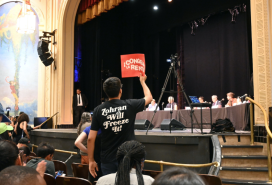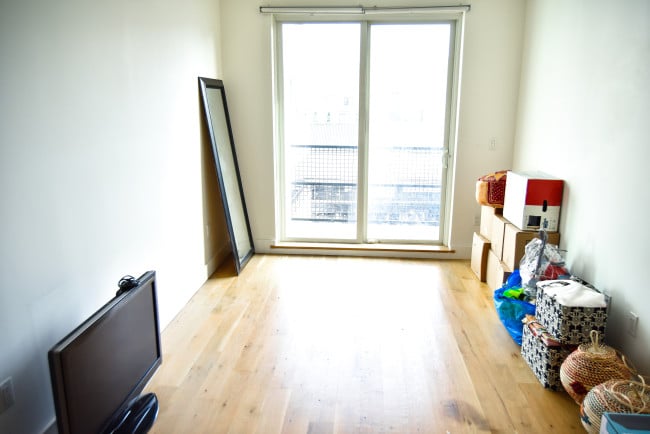Why your security deposit should not be used as your last month's rent

The bottom line is this: If you pay the last month's rent with your security deposit it's possible you could be sued if the landlord ends up out of pocket because of damage to the apartment.
iStock
When you’re moving out of an apartment in New York City, it’s tempting to assume you can use your security deposit as your last month’s rent—after all, lots of New Yorkers do exactly that. But that's not what it is meant for—your security deposit covers the cost of repairing damages to your apartment, and your last month's rent is just that—the two are not supposed to be interchangeable.
It’s true there was an emergency measure during the pandemic that allowed tenants to dip into their security deposit for a rent payment but you are required to pay it back over time.
The bottom line is this: If you pay the last month's rent with your security deposit it's possible you face being sued if the landlord ends up out of pocket because of damage to the apartment. Steven Kirkpatrick, a partner at the law firm Romer Debbas, says it really depends on the landlord and how extensive the damage is. "Some landlords will commence an action to recover the cost to repair the damage, which can easily be done in small claims court," he says.
The purpose of the deposit
Your lease will make clear what the security deposit is for; it’s designed to make sure you leave a clean, undamaged apartment with a working set of keys so the landlord can easily rent the unit to someone else.
It's in the gap between what constitutes "wear and tear" and what constitutes "damage" that you might find disagreement. That's why it's all the more important to request a walk-through at the beginning and end of a tenancy so you can work towards correcting issues that are brought up at the end of your lease by the landlord.
Kirkpatrick says best practice for both landlords and tenants is to take before and after pictures of the apartment to document the conditions. "That will at least help resolve disputes regarding preexisting conditions," he says.
Another potential pitfall: Unpaid utilities can cause problems, particularly if any are in the landlord’s name. If that's the case, Kirkpatrick says the landlord would have to cover the unpaid amount. "That would give the landlord a strong argument to take a portion of the tenant’s security deposit."
[Editor's note: If you are having trouble getting your security deposit back after you leave, the Attorney General's Bureau of Consumer Frauds and Protection now offers an option for recovery through free mediation services.]
A timeline for repayment
The security deposit must be paid back to you (less any itemized costs associated with damage) within 14 days of the end of the lease. If not, the landlord loses the right to keep any of the funds. And if the deadline isn't met, a form submitted to the Attorney General is one way for New Yorkers to get the deposit back.
In most buildings with more than six units, the landlord is required by law to put the security deposit in escrow, giving the tenant more protections than if the money is in a private account.
The practice continues
Some New Yorkers claim they never pay their last month’s rent, figuring the security deposit can be applied to the rent.
Adam Frisch, managing principal at Lee & Associates Residential NYC, a real estate company representing building owners in Manhattan, has told Brick Underground in the past there’s little a landlord can do, but if there's damage to the apartment, a landlord would be entitled to sue to recover the costs.
Kirkpatrick says if there is a lack of trust that the deposit will be returned, a tenant might be more inclined to withhold the last month’s rent. Even so he says "most landlords will not try to put a tenant in default for non-payment over this, especially since if there is only a deposit of one month’s rent, it is unlikely that the landlord could even get into court before the lease ends and the tenant leaves,” he says.
You Might Also Like






























